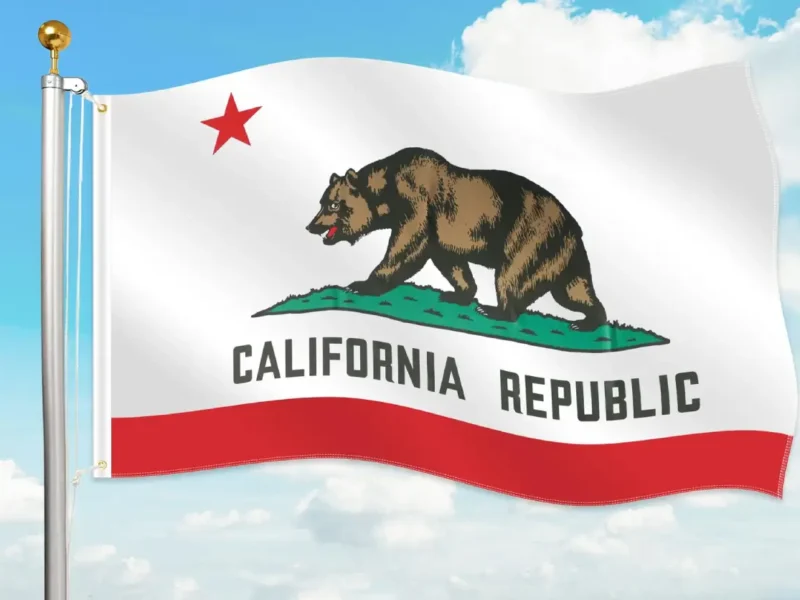
Sri Lanka’s Tryst With China, India
COLOMBO, (IANS) – Even after the Sri Lankan Parliament elected Ranil Wickremesinghe as the eighth President of the island nation, street protests have continued, this time against Wickremesinghe himself.
Days before his election, rampaging mobs had burnt down his house in a tony area of the capital, Colombo, indicating that popular perception sees him no different from Gotabaya Rajapakse who has fled the country.
Well, Wickramasinghe is certainly not a very popular leader. In the last nationwide poll, he was the lone winner of his party, United National Party (UNP).
It is debatable whether there is a better alternative to Wickramasinghe at the present juncture, but the fact is the Parliament members in their wisdom and in their capacity as elected representatives of the people have chosen him to lead the nation out of its crisis.
Their verdict needs to be respected and the 73-year-old veteran be allowed a fair chance whatever be the flip side of his long political innings, and his known likes and dislikes for China.
Things cannot look good in a country that has piled up a loan of $50 billion and is simply in no position to pay even the interest because of its empty coffers.
With the world already in a serious mess because of the Ukraine war, it is hard to see how Sri Lanka can expect a handsome economic package from the international community and financial institutions to bail it out in double quick time. Time is of essence in view of the continued protests by the hapless people of Sri Lanka.
Interestingly, the Chinese are neither seen nor heard as Laffaire Rajapaksa engulfed Sri Lanka. This is surprising given the level of Bamboo capitalist’s involvement in the country under the Rajapaksas. It has now reacted warily to Wickremesinghe’s anointment as the Man Friday but there is no indication whether China will step in to help the debt-ridden island nation.
Expectation of a big Chinese package for Sri Lanka, surpassing India’s help, appear misplaced. At least, as of now.
The Indian government’s aid to Sri Lanka in the last month or two has been over $3.5 billion, which includes shipments of food, fuel, and medicine. This is in addition to the helping hand extended by Tamil Nadu, which is across the Palk Straits.
However, India’s help in time of dire need has not been able to eliminate the anti-India perception in the minds of some sections of Sri Lankans. During the ongoing protests, slogans like “Don’t Sell the Country to India and the US”, “India: Sri Lanka is not Another State (of India)” and “India Don’t Exploit Sri Lanka Situation” were heard.
Nonetheless, the anti-India activists and politicians have been quick to acknowledge in recent media interviews that India has been a friend in need. The Indian help has enabled the fuel depots to remain in business.
There is a growing view that in attempting to tide over its economic crisis, Sri Lanka’s new government has ‘much to learn from India’s reforms’. Writing in an Indian English daily, noted Lankan economist Ganeshan Wignaraja (a Non-Resident Senior Fellow at the National University of Singapore), said Sri Lanka is awaiting its own P.V. Narashima Rao — a reference to the way Rao steered India in 1991 with his reform program. That is beside the point.
The interesting reality is that the Colombo protests have brought together all communities to save their country from collapse. The antagonism between the majority population (Buddhist-Sinhala) and the minority population consisting of Tamils (Hindus and Christians), Muslims and Christians, has retreated from the frontlines.
The LTTE insurgency, demanding a separate homeland for Tamils living in north and north-east Sri Lanka, had fueled anti-Tamil sentiments. A terror attack by Islamic militants about four years back resulted in spreading an anti-Muslim wave even as it started the act of demolition of Sri Lanka’s thriving tourism industry, a mainstay of its economy.
There can be no denying that within India, particularly in Tamil Nadu, there is some anti-Lanka sentiment. Resentment lingers at the massacre of Tamils during and after the LTTE insurgency for which there has been no accountability.
On its part, New Delhi has been unhappy to see Sri Lanka renege on the accord that had promised devolution of power to the provinces, the Tamil majority province including. These are the issues that should remain on the backburner with Sri Lanka occupied with the more urgent problem of meeting daily needs for possibly a few years.
There is no quick fix for all that Sri Lanka has suffered with or without China on board. For the past several years, successive governments in Sri Lanka had sucked up to China with a mindless urge to get ‘generous’ aid. And the Chinese seemed to care little about the repayment capabilities of Sri Lanka. It was sufficient for China to pull Sri Lanka into its orbit, decoupling from neighboring India.
Is the scene going to reverse now? Well, it is ‘Paakalam’ as the Tamilians say. No immediate answer.




